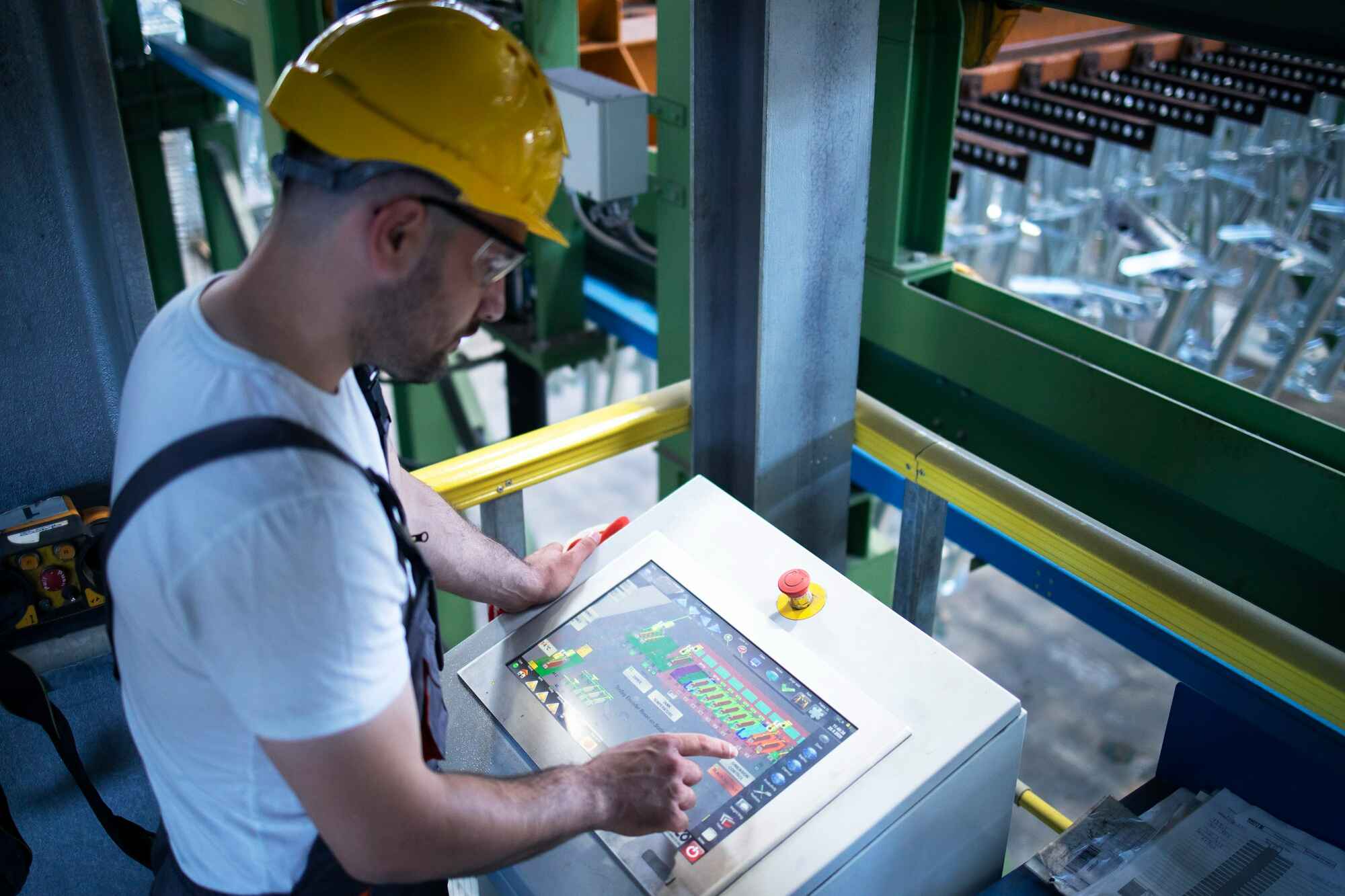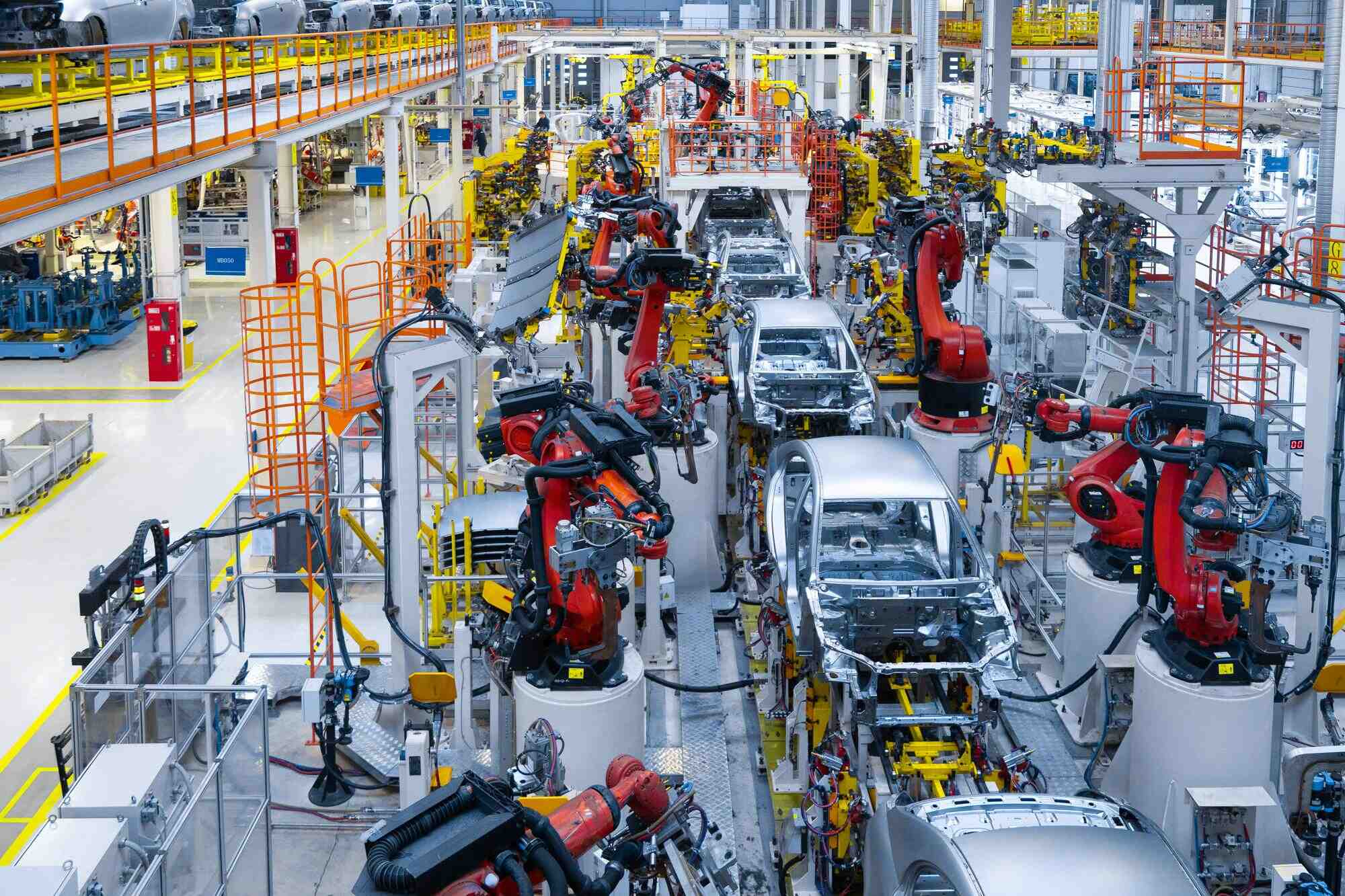ERP for the manufacturing industry is more than just a buzzword—it’s a game-changer for local businesses aiming to streamline operations. With ERP, managing production workflows, tracking resources, and optimising supply chains become simpler and more efficient, giving you better control over the entire manufacturing process.
In this article, we’ll explore how ERP for the manufacturing industry enhances everything from inventory management to quality control. You’ll learn how ERP tools improve productivity, lower costs, and leverage data analytics to stay competitive. Dive in to see how ERP can transform and boost your business!
1. Introduction to ERP in Manufacturing

In Malaysia’s competitive manufacturing landscape, ERP systems are becoming essential tools for success. An ERP for the manufacturing industry helps you manage everything—from production workflows to resource tracking. Let’s explore the key features and benefits that ERP offers manufacturers today.
What is ERP for Manufacturing?
ERP for the manufacturing industry is a software that connects and automates processes, integrating all aspects of a business. From production to finance, ERP systems create a unified view of operations, helping manufacturers keep a better pulse on productivity and costs. This integration makes it easier for manufacturers to stay efficient and responsive in fast-changing industries.
The Role of ERP in Manufacturing Growth
ERP systems don’t just streamline processes; they’re essential for growth. As production scales, so does the complexity. An ERP system simplifies this complexity by managing resources, equipment, and finances from a single platform, allowing businesses to grow confidently. Plus, ERPs can track everything in real-time, offering insights that help you make smarter decisions for scaling your operations.
How ERP Changes Malaysian Manufacturing
In Malaysia, ERP systems address industry challenges by offering tailored solutions that align with local manufacturing needs, from regulatory compliance to cultural considerations. For example, ERP systems can manage supply chains that rely on vendors across Asia. By centralising information, they make it easier for Malaysian manufacturers to handle cross-border logistics efficiently and cost-effectively.
Benefits of ERP in Manufacturing
The benefits of ERP for manufacturing in Malaysia are clear: they offer better control, reduce operational costs, and improve quality. These systems automate repetitive tasks and provide real-time data that ensures production meets customer expectations. The result? Consistency, cost savings, and a stronger position in competitive markets.
2. Streamlining Production Workflow with ERP for Manufacturing

Implementing an ERP for the manufacturing industry significantly boosts productivity by enhancing workflow. An optimised workflow means less downtime, faster turnaround, and more streamlined operations. Here’s how ERP systems make production flow smoothly from start to finish.
Automating Production Scheduling
ERP systems automate production schedules based on current orders, stock levels, and available resources, reducing human error. With automated scheduling, you don’t need to worry about production delays. Everything is updated in real-time, so you’ll always know what’s happening on the factory floor and where resources need to be allocated next.
Managing Workforce Efficiency
Efficient workforce management is crucial in manufacturing. ERP software monitors employee productivity, scheduling, and resource allocation, ensuring the right people are working on the right tasks. For instance, an ERP might notify you if certain skills are needed on the production line, helping maximise efficiency while minimising downtime.
You can also monitor workforce utilisation in real time, helping you assign tasks effectively and minimise idle time. This feature ensures that your team’s strengths are utilised fully, increasing productivity and reducing delays.
Real-Time Monitoring of Production Phases
With ERP, real-time monitoring of each production phase allows managers to track progress and address any issues immediately. Whether you’re producing electronic parts in Penang or clothing in Johor, real-time updates keep you in control. This transparency improves decision-making and ensures that any issues are quickly identified and resolved.
Enhanced Collaboration Across Departments
ERP systems promote collaboration between departments by centralising data. For example, if the sales team records a large order, the system notifies the production team, ensuring there are enough materials in stock. This kind of integration eliminates silos and improves communication, helping everyone work towards the same goals efficiently.
3. Inventory Management – Just-in-Time (JIT) with ERP

Implementing Just-in-Time (JIT) inventory practices can significantly reduce waste and optimise stock levels. An ERP system tailored to the manufacturing industry supports JIT by maintaining a close watch on inventory levels, helping you manage supplies in real time for smoother operations.
Balancing Inventory with Demand
An ERP system helps you analyse current and historical demand, ensuring just the right amount of inventory. By syncing demand forecasts with inventory, you can avoid overstocking and reduce holding costs, especially useful in high-demand industries like electronics and food manufacturing in Malaysia.
Real-Time Stock Level Updates
An ERP’s real-time tracking system provides instant updates on stock levels, allowing you to respond to low inventory alerts promptly. This minimises stockouts, keeping production on schedule and avoiding bottlenecks that disrupt the entire workflow. Real-time insights can be particularly useful for SMEs, where time-sensitive delivery is critical.
Automated Supplier Management
ERP systems streamline supplier management by tracking supplier lead times, order accuracy, and delivery efficiency. By managing supplier relationships effectively, you ensure your production line is never stalled due to late shipments, an essential feature for Malaysian manufacturers dealing with overseas suppliers.
Inventory Cost Reduction
JIT inventory management lowers carrying costs by ensuring that materials are ordered only when needed. This not only optimises space but also aligns with cost-saving goals, especially relevant for SMEs in Malaysia looking to maximise returns on limited storage space.
Enhanced Planning and Reporting
Using an ERP system for planning and reporting enhances decision-making capabilities. Detailed reports enable managers to adjust their JIT strategies, helping improve efficiency and reduce costs. For example, Zoomo Tech could design a Custom ERP Solution that integrate advanced analytics and reporting, enabling manufacturers to refine inventory practices without complex manual work.
4. Quality Control and ERP Integration

In manufacturing, quality control is essential for brand reputation and customer satisfaction. ERP systems support quality assurance by automating testing, data tracking, and compliance documentation, ensuring that products meet high standards at every stage.
Automated Quality Checks
ERP systems automate quality checks, integrating them seamlessly into the production line. By setting automated inspections, manufacturers ensure that only top-quality products reach customers, reducing the need for manual checks and lowering the risk of recalls.
Tracking and Logging Quality Metrics
Quality metrics—such as defect rates, material quality, and process efficiency—are tracked continuously within the ERP system. This visibility makes it easier to pinpoint quality issues quickly and resolve them before they affect production, creating an efficient, problem-solving environment.
Compliance and Standards Management
ERP systems simplify compliance by keeping detailed records of quality and safety standards. Manufacturers in Malaysia’s regulated industries, like automotive and healthcare, can use ERP systems to ensure they meet both local and international standards without extra effort, avoiding costly fines or operational disruptions.
Real-Time Problem Solving
Quality issues can be addressed in real time, reducing the risk of large-scale defects. For instance, a sudden change in raw material quality can be flagged immediately. This real-time intervention helps prevent costly mistakes and maintains customer trust.
Integrated Reporting for Quality Assurance
The quality data tracked in an ERP system is also beneficial for creating reports that guide future production improvements. Most ERP solutions offers advanced quality reporting features, enabling manufacturers to analyse quality data effectively and achieve higher consistency.
5. Supply Chain Optimisation via ERP Tools

A smooth and optimised supply chain is crucial for manufacturers. ERP systems centralise supply chain processes, reducing delays and costs while improving transparency from procurement to distribution.
End-to-End Visibility of Supply Chain
ERP systems offer end-to-end visibility, tracking everything from raw materials to finished products. This transparency means managers can make quick adjustments, ensuring that products reach the market on time. Visibility is especially beneficial for Malaysian manufacturers who rely on imported materials.
Reducing Supply Chain Costs
By tracking and analysing supply chain costs, an ERP system helps manufacturers identify and cut unnecessary expenses. For example, data-driven insights can reveal areas to negotiate better rates with suppliers or streamline shipping, lowering operational costs in the long run.
Improving Order Accuracy
ERP systems enhance order accuracy by tracking each component in the supply chain. For example, manufacturers can use the system to ensure that materials arrive at the right time, reducing errors that could impact production timelines.
Integrating Local Logistics
With ERP, manufacturers can also integrate local logistics providers, ensuring that shipping aligns with their production schedules. ERP solutions support logistics integration, allowing manufacturers to optimise last-mile deliveries and improve customer satisfaction in Malaysia’s growing e-commerce market.
6. Real-Time Equipment and Resource Tracking

Managing equipment and resources is easier with real-time ERP tracking. This feature ensures optimal usage, reduces maintenance costs, and improves productivity, making it easier to allocate resources effectively and keep operations running smoothly.
Monitoring Equipment Performance
ERP systems track equipment performance, providing alerts if maintenance is needed. By preventing equipment breakdowns, manufacturers save costs and reduce downtime, an invaluable asset for factories handling high-demand products.
Optimising Resource Allocation
ERP systems help allocate resources based on production demand, ensuring the right materials and equipment are where they’re needed most. This allows manufacturers to avoid bottlenecks and keep their operations flowing smoothly.
Reducing Energy and Utility Costs
ERP systems can also help track energy usage, offering insights into where savings can be made. Reducing utility costs directly impacts the bottom line, which is particularly valuable for energy-intensive sectors like electronics manufacturing.
Advanced Equipment Life Cycle Management
With ERP systems, manufacturers can track each piece of equipment’s life cycle, helping plan for replacements and upgrades. Zoomo Tech could design a custom ERP tools that support lifecycle management, ensuring equipment is replaced before issues arise, thus sustaining productivity levels. Want to know more about the our solutions? Contact us today for more info.
7. Data Analytics in Manufacturing ERP Systems

Data analytics in ERP systems offers manufacturers actionable insights into every aspect of production, from supply chain logistics to quality control. With the right ERP, data becomes a powerful tool for improving operations and staying competitive.
Enhancing Production Insights
ERP data analytics provide insights into production trends, enabling manufacturers to predict demand and adjust operations accordingly. For example, companies can track peak demand periods to avoid stockouts, crucial for sectors like consumer electronics in Malaysia.
Tracking Employee Performance
ERP systems can track individual employee performance metrics, such as productivity and efficiency. By understanding where workforce strengths lie, managers can assign tasks more effectively, helping Malaysian manufacturers maximise workforce output without increasing labour costs.
Improving Product Lifecycle Management (PLM)
ERP data analytics can track product performance across its lifecycle, from design to end-of-life. By analysing data such as customer feedback, warranty claims, and maintenance logs, manufacturers can refine their designs and production methods to create longer-lasting, higher-quality products.
Identifying Bottlenecks in Production Lines
Analytics tools in ERP systems can pinpoint bottlenecks in the production line by analysing data on production speed, equipment utilisation, and order fulfillment times. Once identified, manufacturers can implement solutions to optimise workflow and meet delivery deadlines more consistently.
Data-Driven Decision Making
ERP analytics provide a clear picture of business health, empowering manufacturers to make data-driven decisions. An ERP solutions incorporate customisable dashboards that highlight key metrics, making it easy for manufacturers to adjust strategies and optimise their operations.
Conclusion
In today’s competitive landscape, ERP for manufacturing industry transforms operations, from production workflow and inventory management to cost reduction and quality control. With real-time data, ERP boosts productivity and helps you make data-driven decisions, making it an invaluable tool for manufacturers aiming to streamline processes and stay competitive in Malaysia.
At Zoomo Tech, we understand the unique challenges faced by Malaysian manufacturers. Our ERP solutions can be customised to fit your industry needs, helping you achieve smoother workflows, reduce waste, and improve productivity. Let us help you harness the full potential of ERP to drive success in your manufacturing journey.




